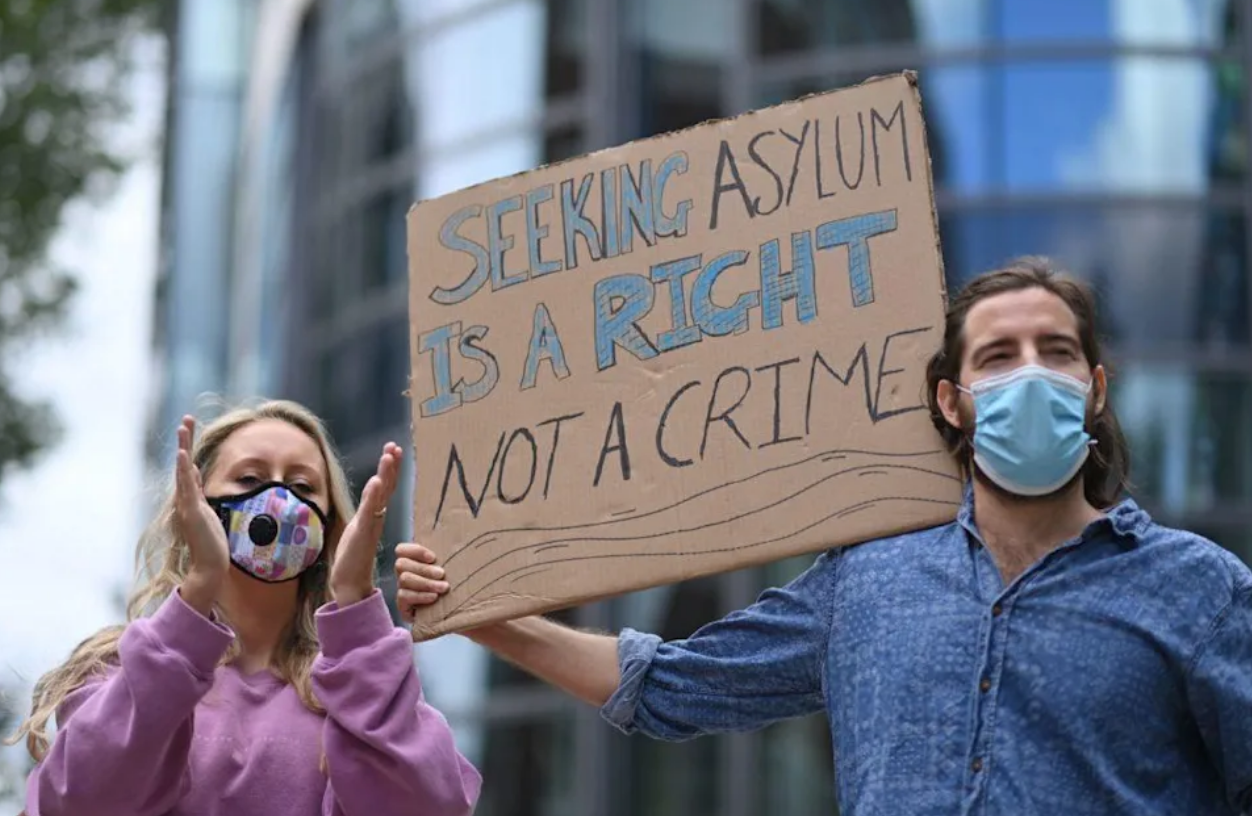
Sanctuary is legal, per judge who shoots down Florida’s ban on policies
The judge argued the state’s ban on municipalities from enacting “sanctuary” measures was done with the intention to discriminate.
A federal judge in Miami has ruled that a Florida law banning municipalities from adopting “sanctuary” policies for immigrants in the U.S illegally is unconstitutional, with her decision relying partly on support for the law from “anti-immigrant hate groups.”
On Tuesday, Sept. 21, U.S. District Judge Beth Bloom said in a 110-page ruling that the 2019 law, championed by Republican Gov. Ron DeSantis, is in violation of the Equal Protection Clause of the U.S. Constitution, because it was adopted with the intention to discriminate.
HUGE WIN! A federal judge in Miami has blocked #SB168, an anti-immigrant bill aimed at banning sanctuary cities in Florida. Portions of the law were declared unconstitutional and discriminatory.https://t.co/a4iDRhx4IK
— Americans for Immigrant Justice - AI Justice (@Am4ImmJustice) September 22, 2021
Bloom held a six-day bench trial in January on the lawsuit, which was brought forth by the City of South Miami and several advocacy and nonprofit groups.
On Tuesday, Sept. 21, Bloom said the state’s claim that the law was designed primarily to maintain public safety was unsupported by crime statistics and other evidence, including the involvement of far-right groups such as the Federation for American Immigration Reform (FAIR) in drafting the measure.
“Allowing anti-immigrant hate groups that overtly promote xenophobic, nationalist, racist ideologies to be intimately involved in a bill’s legislative process is a significant departure from procedural norms,” Bloom wrote.
Bloom did permit some provisions of the law to remain, including a requirement that local law enforcement comply with requests from ICE to detain individuals beyond their release date so they can be picked up by federal agents.
Florida State Sen. Joe Gruters, a sponsor of the law, said it was adopted with public safety in mind and that Bloom was “misled” in finding otherwise.
“I look forward to this ruling being overturned,” Gruters said in an email to Reuters.
The 2019 law banned a large range of “sanctuary policies,” such as those limiting state and local police from helping federal immigration officers and asking about individuals’ immigration status. The law also requires law enforcement agencies to use their “best efforts” to uphold federal immigration laws.
RELATED CONTENT
U.S. District Judge Beth Bloom ruled that a Florida law banning municipalities from adopting "sanctuary" policies for immigrants in the U.S. illegally is unconstitutional https://t.co/rDohCvEffa @DanWiessner
— Reuters Legal (@ReutersLegal) September 22, 2021
At least 10 other states, including Missouri, Texas, and South Carolina, have implemented similar laws prohibiting sanctuary policies or denying funding to the cities that do adopt them.
DeSantis and other supporters of the law claimed it would improve public safety by keeping criminals out of communities, but many Democrats and advocacy groups claimed it would discourage immigrant communities from cooperating with law enforcement, thus increasing instances of racial profiling.
Bloom agreed with many of these criticisms and doubled down on the discriminatory nature of the measure.
"These discriminatory motives are made evident from the historical and ongoing pattern of racial discrimination by law enforcement and the growing reliance on an immigrant threat narrative to justify the enactment of anti-immigrant legislation across the nation," she wrote.
Dr. Allan Lichtman, a professor of history at American University, with expertise in statistical analysis as well as discriminatory legislative intent and impact, also testified on behalf of plaintiffs.
He said that lawmakers insisting that the bill was about public safety contradicted crime rate data from the Florida Department of Law Enforcement and federal data on ICE arrests.
Lichtman testified that data showed 73% of ICE arrests under cooperative immigration agreements in Florida between 2015 and 2018 involved individuals with no criminal records or a record of minor offenses, whereas only 0.4% involved individuals with serious criminal offenses like homicide or sexual assault.
He concluded that the bill sponsor’s claim that it would reduce the crime rate and improve public safety is “unsupported” by the falling crime rates in the state, despite the simultaneous rise in undocumented immigration.










LEAVE A COMMENT: